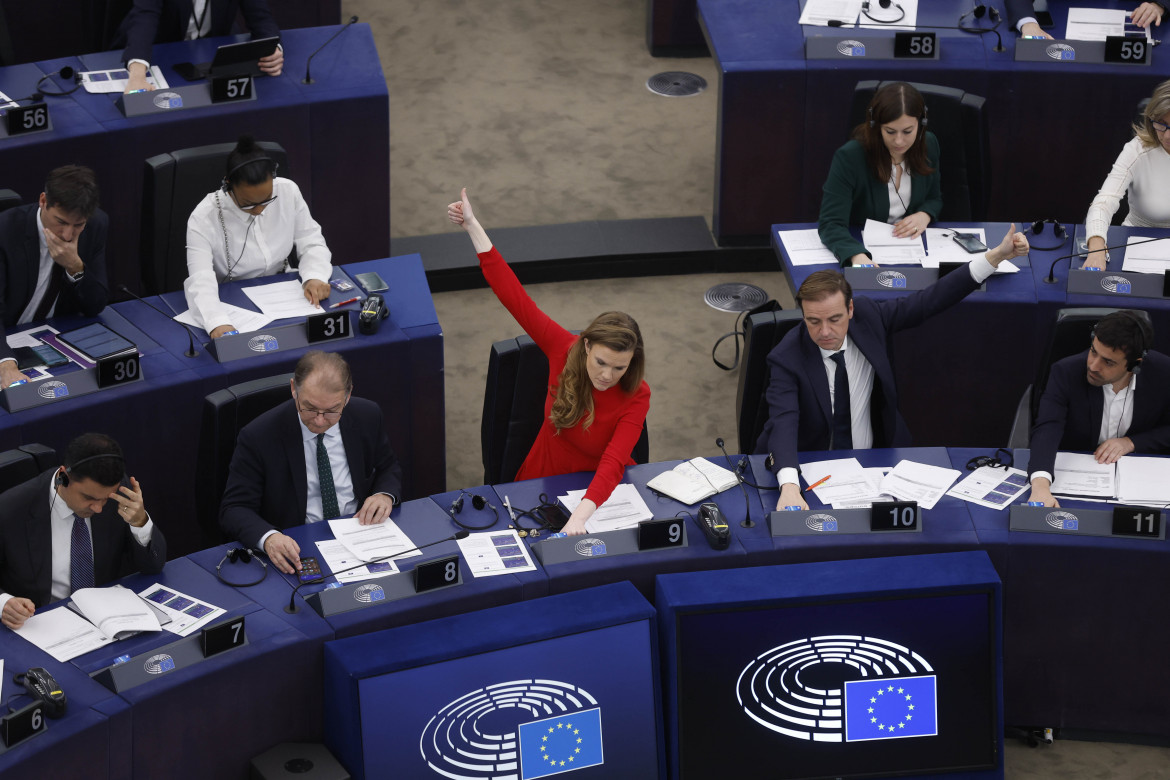Analysis
On energy-efficient buildings, the EU votes yes while Meloni’s government votes no
Strasbourg green lights green homes, but the Italian right claims the bill lacks ‘serious consideration of the Italian context.’ The goal of the bill is a substantial reduction in greenhouse gas emissions and energy consumption by 2030 in order to achieve climate neutrality by 2050.

Italy – or at least the majority that is governing the country today – is setting itself apart from Europe. On Tuesday, in Strasbourg, MEPs from Fratelli d’Italia, the Lega and Forza Italia voted against the majority in the European Parliament which adopted the negotiating mandate on the bill that includes targets for renovating the building stock of member states in order to increase energy efficiency.
The goal of the bill is a substantial reduction in greenhouse gas emissions and energy consumption by 2030 in order to achieve climate neutrality by 2050.
The European Parliament’s negotiating position was approved by 343 votes for to 216 against, with 78 abstentions. According to the adopted position, all new buildings will have to be carbon neutral from 2028, with an earlier deadline of 2026 for new buildings occupied, managed or owned by public authorities.
Furthermore, residential buildings will have to achieve, as a minimum, energy performance class E by 2030 and D by 2033. For nonresidential and public buildings, the same energy classes will have to be reached by 2027 (E) and 2030 (D) respectively. According to a press release, the European Parliament has also given directions to take into account the different starting conditions of the national building stock of different countries.
Interventions to improve energy performance (such as in the form of insulation work or refurbishment of the heating system) will have to be carried out when a new tenant moves in, or when the building is sold or renovated. Each EU country will establish the measures necessary to achieve these goals by approving a National Renovation Plan, incentivized with support schemes to facilitate access to grants and financing.
“Financial measures should provide an important premium for deep renovations, especially of the worst-performing buildings, and targeted grants and subsidies should be made available to vulnerable households,” reads the aforementioned EP press release, in an apparent response to the Italian government, which has protested against the measure, going so far as to describe it as an “attack on the homes of Italians” in the words of Lega MEPs, who also claimed that the EU was “led by a left that is increasingly ideological and detached from reality.”
The FI delegation also voted no, with the exception of Lucia Vuolo who voted in favor. The EPP, of which Berlusconi’s party is a member, broke up into three blocs between those who voted in favor, against and those who abstained. Among the Italians, those who voted in favor of the directive were the delegations of the PD, Greens and M5S, while Nicola Dant and Giosi Ferrandino of Italia Viva-Renew abstained. Sandro Gozi, also a member of Renew and secretary of the European Democratic Party, voted yes. The Liberal group didn’t all vote in favor of the text either: a minority voted against or abstained.
One Italian MEP who expressed satisfaction about the outcome of the vote was Angelo Bonelli, national co-spokesperson of Europa Verde and a member of the Green and Left Alliance group, who said that “this is the best response to a government – the Italian one – that has embarked on a policy of fearmongering on the climate and energy saving, entirely based on false information. This is a great opportunity that will produce employment benefits and help counter the climate crisis. Now, using funding from the Social Climate Fund, Italy will put together a structural plan for a period of over a decade that will provide incentives and deductions for low energy class housing, with higher allocations for low incomes.”
Also satisfied was Brando Benifei, head of the Democratic Party delegation, who is working together with MEP Patrizia Toia, the first signatory of an amendment with the goal of finding resources to ease the transition and mitigate any negative socio-economic impacts.
However, it’s unlikely that Environment Minister Gilberto Pichetto will follow Bonelli’s suggestions. “The Green Homes Directive approved in the European Parliament is unsatisfactory for Italy,” he said. “In the three-party dialogue (with the EU Council and Commission), we will continue to fight to defend the national interest, as we have done so far.“
He claimed that what the text was lacking was “a serious consideration of the Italian context, which is different from that of other European countries due to historical issues, geographical makeup, as well as a deep-rooted vision of the house as the ‘safe-haven asset’ of Italian families.”
Unfortunately, it’s a “safe haven” that is also leaking energy like a sieve and burdening Italians with heavy costs with every new bill.
Originally published at https://ilmanifesto.it/case-green-il-parlamento-ue-vota-si-governo-meloni-contro on 2023-03-15
